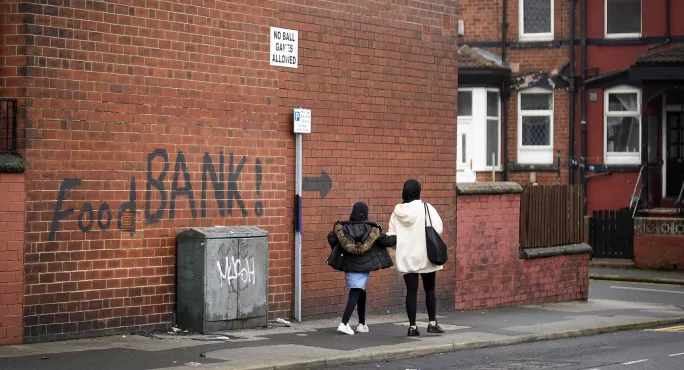- Home
- Leadership
- Strategy
- Governors: why we need to step up to help families in crisis
Governors: why we need to step up to help families in crisis

Surrey may be perceived as a more affluent part of the country but, from what I see as a chair of governors at two schools and a trustee for a large multi-academy trust, it is clear that families at our schools are being hit just as hard by the cost-of-living crisis.
Schools are, of course, doing what they can to help. At one of the schools, I work with second-hand uniforms: previously they lay in a corner of the school office, largely forgotten - now they are in high demand.
As governors, we must recognise that we have a role to play in providing support, too.
While our chief responsibility is setting the strategic direction of the school so it delivers the best education and life chances for all pupils, if children are coming to school hungry, cold and worried, they just aren’t ready to learn.
School governors helping families in the cost-of-living crisis
So how can we help?
Firstly, we need to be assured that school leaders are picking up on the signs of families suffering from the cost-of-living crisis and sharing with governors how the school can help.
At the schools I work with, governors make a point of asking leaders at least termly about any support that is being provided for families. This can be through direct questions or asking questions about the information that leaders provide, taking care not to directly identify any children or families during discussions.
Questions for governors to ask are:
- How many pupils are affected by the cost-of-living crisis in our school?
- Is this situation likely to get worse?
- What are we currently doing?
- What more could we do?
Governors should always ask about how children attracting pupil premium funding are being supported, and it’s also important to be mindful of families who used to receive benefits and now no longer do and yet could still be struggling.
Sometimes a question from a governor like “have we noticed any increase in children with ill-fitting shoes?” or “are children in uniforms that have not been washed for some time?” may prompt investigation and action.
- Governance: School governor and trustee vacancies highest in six years
- Leadership: How we can improve diversity on school governing boards
- Governors: Why every teacher should be a school governor
We have found at our schools that as well as clothing and food initiatives, the little things can also help. Making sure that children have their own colouring pencils and crayons at home or a book of their own are good examples.
It’s a small cost that can, in most cases, come from pupil premium funding, and it makes a significant difference to that child and their family.
The staff know exactly which children are in need and are encouraged to discreetly give what is needed while never sharing the identities of those children.
It’s clear from the discussions I took part in at the second annual National School Governors’ Awareness Day that many governors around the country are already doing what they can to ensure that their schools are supporting struggling families.
The event was focused on the cost-of-living crisis, and during the day we heard insights into how the situation is affecting the families in our schools and discussed approaches that could help in some way.
These include many schools setting up coat banks where pre-loved or even new coats can be donated. Signposting parents to charities and organisations that can offer financial advice and support - Citizens Advice, for example - is another popular measure.
Schools are also reaching out to businesses in their communities, such as supermarkets, and receiving funding for coat bank initiatives and food for food banks and breakfast clubs. Governors can help here by using their community connections to facilitate introductions.
Of course, there is only so much that governors and school staff can do - especially when school budgets are under huge inflationary pressures.
But those of us who have stepped up to serve our schools and their communities have to think hard, act where we can and work closely with school leaders to ensure that crisis-hit families aren’t left to suffer alone.
Yvonne McLeod is a Local Leader of Governance, a chair of governors at an infant and a junior school, a governor in a primary school and a trustee director at a large multi-academy trust
Register with Tes and you can read two free articles every month plus you'll have access to our range of award-winning newsletters.
Keep reading with our special offer!
You’ve reached your limit of free articles this month.
- Unlimited access to all Tes magazine content
- Save your favourite articles and gift them to your colleagues
- Exclusive subscriber-only stories
- Over 200,000 archived articles
- Unlimited access to all Tes magazine content
- Save your favourite articles and gift them to your colleagues
- Exclusive subscriber-only stories
- Over 200,000 archived articles
topics in this article



